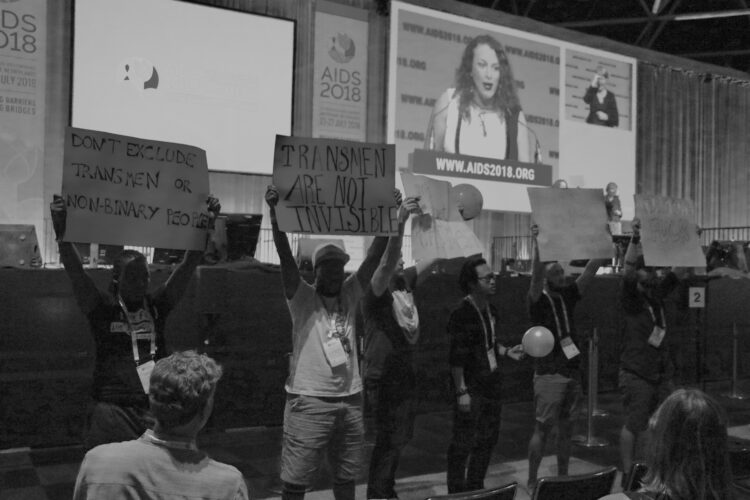Closing the Gaps in the Global HIV Response
Trans people have not benefited equally from the global HIV response. In 2022, trans people had the lowest rate of viral suppression (44%) of all key populations globally and the highest HIV prevalence rate in almost every region of the world – reaching as high as 39.4% in the Caribbean. Despite HIV’s disproportionate impact, trans men and other gender diverse persons assigned female at birth continue to be largely left out of HIV programs, policies and data collection.
This exclusion is often justified by the outdated belief that trans men are at low risk of HIV. A lack of research and inconsistent data on population size have further reinforced this misconception. However, new evidence shows that trans men are nearly seven times more likely to be living with HIV than the general population.
To address this gap, the International Working Group on Trans Men & HIV, coordinated by GATE, was establish. The Working Group works to generate and share critical knowledget about trans men and HIV, and to develop strategies that ensure this community is meaningfully included in global HIV and health responses.
This community-led initiative brings together 35 trans men and trans masculine activists, researchers and public health experts from 25 different countries across all global regions.
The idea for the Working Group was formed at the World AIDS Conference in 2018 in Amsterdam. During the event, trans men and trans masculine people working in HIV research and service delivery gathered to express their frustrations at being excluded from international HIV efforts. Their discussion led to a silent protest during the conference’s Closing Plenary and an announcement by GATE’s then Director of Programs – now Executive Director – of the plan to form a dedicated working group on trans men and HIV. The project officially began in 2019 and has since become a strong example of community-driven advocacy for equitable access to healthcare.
The Working Group aims to drive positive change by raising awareness among donors, global health institutions and policymakers about the realities HIV, sexual and reproductive health, and broader health challenges faced by trans men and assigned female at birth gender diverse people. Its work highlights key challenges, identifies gaps, and shares best practices for moving forward.
The group takes an inclusive feminist approach, emphasizing that the current focus on trans women and HIV is essential – but underfunded – and that resources should be both increased for trans women and expanded to include trans men and other gender diverse people
The Working Group’s advocacy includes producing knowledge and amplifying awareness on international platforms. At the AIDS 2020 Virtual Conference, it organized a landmark Satellite Session, “Transgender Men & HIV: Experiences Vulnerabilities, why we should care, and where to go from here.” This was the first-ever session led by trans men in the history of an International AIDS Society Conference.
From 2023-2025, the Working Group launched three major advocacy resources:
- Policy Brief on Trans Men in the Global HIV Response, designed for policymakers and donors, offers foundational knowledge and comprehensive recommendations for including trans men and gender diverse people assigned female at birth HIV strategies and global development goals.
- Factsheet, created for the trans and gender diverse community, directly challenges misconceptions about HIV and trans men, providing acccessible information and tools for advocacy.
- Smart Guide to the Policy Brief, designed to guide trans and gender diverse communities to use the Policy Brief as an advocacy tool to push for trans-inclusive health initiatives.
Together, these efforts represent a growing movement to ensure that trans men and gender diverse people assigned female at birth are no longer invisible in the global fight against HIV.





